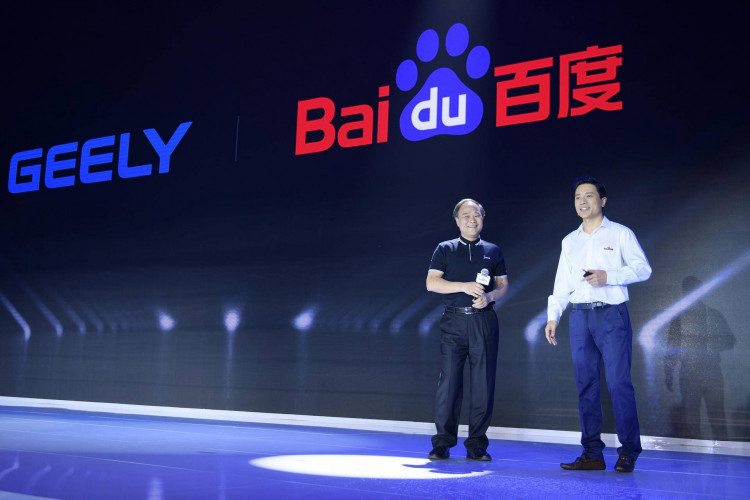China search-engine company Baidu Inc. said Monday it was collaborating with Zhejiang Geely Holding Group Co., Ltd. to manufacture electric vehicles.
The collaboration will target the country's passenger vehicle market, according to analysts.
The price of shares in Geely Automobile Holdings, a subsidiary of Zhejiang Geely Holding, rose 3.3% Monday in Hong Kong after rising 19.6% late Friday on rumors. They were last traded at HK$32.40 each. The company has a market capitalization of HK$337.10 billion ($52.03 billion).
Baidu's shares listed on the Nasdaq were expected to open Monday at $256.00 - up 6.56% from their Friday close of $240.25 each.
Baidu developed and operates an open-source autonomous-driving platform. Zhejiang Geely Holding is a traditional motor-vehicle maker.
Zhejiang Geely Holding will become a strategic partner in the new company while Baidu will have a majority stake, according to a statement by Baidu. Neither of the companies elaborated on management or the name of the new brand.
Business Times reported Dec. 17 Baidu was in talks with at least three domestic automakers - Guangzhou Automobile Group Co., Ltd., China FAW Group Corp., Ltd. and Zhejiang Geely Holding - for a deal to manufacture EVs. Zhejiang Geely Holding has been working with Baidu since July 2019 on the Apollo self-driving car program.
Analysts said the collaboration will be based upon Geely's EV architecture - which was launched in September as the world's first open-source electrical vehicle platform.
This will "support small as well as large vehicles - including sedans, SUVs, vans and pickups," Geely's president An Conghui said. The architecture uses a battery system with a life span of 2 million kilometers and is made by Contemporary Amperex Technology Co., Ltd.," An said.
Geely spent 18 billion yuan ($2.78 billion) on research and development over the past four years, according to public information. The architecture aids in developing intelligent vehicle technologies - such as autonomous driving and connectivity.
Before the deal with Baidu, Hangzhou-headquartered Geely was already building factories for its own EV.
Reuters reported in October that the company planned to build a factory with an annual capacity of 30,000 units in Chongqing. Two weeks ago local news reports said the company was setting up another plant in Jinan. It is expected to start production in 2022 with an annual capacity of 10,000 EVs.
"So far, the company has inked deals with over 1,000 battery-swap stations nationwide," Yang Quankai, head of battery swapping at Geely Technology Group, a Geely unit, told China Daily on Friday. "By 2025, Geely will have 5,000 battery-swap stations across China."
Between January 2020 and November Geely exported 60,800 vehicles with November's exports reaching 11,800 - a 200% year-on-year increase. Zhejiang Geely Holding has 22 factories in China as well as three overseas, according to the company website.
"As a traditional automaker, Geely has been facing challenges from new generations of EV makers such as Nio and Xpeng who are good at internet promotion," Zhang Yi, chief executive of iimedia Research, told China Business Network. "It's a good time to make changes."
Last November, JPMorgan forecast that deliveries of EVs would increase to 20% of the mainland China passenger vehicle market by 2025 from less than 5% in 2019.





